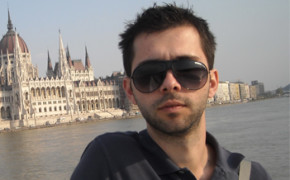The practice refers to enhancing environmentally sustainable, resource-efficient fisheries and aquaculture, promoting blue growth and marine skills in Greece.
Aquaculture and especially fish farming are one of the most important sectors of the primary livestock sector in Greece. To enhance the environmental resource efficiency of the environment, the Operational Program for Fisheries and Maritime 2014-2020 (EPALTH) was approved by the European Commission in October 2015.
The EPALTH is a 7-year national plan which presents how each EU member state utilizes the funds available for the development of fisheries and aquaculture. The goals are the following:
• Improving the competitiveness of the aquaculture and processing sectors
• Sustainability of marine fisheries and development of areas traditionally dependent on fisheries
• Protection and restoration of the marine environment and living resources, control of fishing activities, collection of fishery data and marine knowledge improvement
In 2018, a subsidy was provided that can reach up to 85% of the amount of the investment plan and which can be received by aquaculture companies that take advantage of the program "Innovation in Aquaculture" in Greece. The specific action implemented within the Operational Program EPALTH enables companies to partner with research agencies in order to integrate innovative production and operation methods. The investment projects focus on the development or introduction to the market of new aquaculture products with good prospects in the market, new or significantly improved products, or improved management and organization systems.
Resources needed
EPALTH was approved with a total Public Expenditure of 523 million €. The institutional framework of its operation includes 114 investment projects costing 97 million €.
Regarding the subsidy, the maximum amount of the eligible budget is 600,000 €, while the public expenditure is 10 million €.
Evidence of success
So far, the EPALTH Programme has managed to:
• effectively improve the competitiveness of the aquaculture and processing sectors.
• aid towards the sustainability of marine fisheries and sustainable development of areas traditionally dependent on fisheries.
• protect and restore of the marine environment and living resources, control of fishing activities, collection of fishery data and improvement of knowledge about the state of the marine environment.
Difficulties encountered
Τhe implementation "lagged" behind in terms of overall and sectoral achievement of its objectives, although it is in the middle of the programming period, while the achievement of the budgetary objectives was based on expenditure allocated mainly to non-development measures (ship dismantling).
Potential for learning or transfer
This practice is transferable thanks to needs addressed common across European regions and to demonstrated achieved benefits that outweigh investment costs by far. This practice can be applied elsewhere as the needs of the operators are common in other EU countries. Meeting and discussing them, finding solutions together, each with their own competence, is something very simple to do. The needs in this sector are quite common across European regions and in this case it can be useful to follow the example of somebody that has developed a good practice that is demonstrating that achieved benefits outweigh investment costs by far.
Tags: Access to finance, Fishing, Good practice, Innovation, SME








